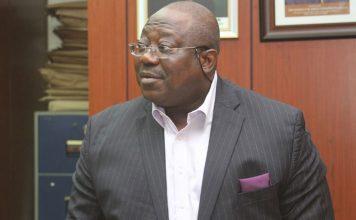Prof.Tunji Olaopa, the chairman of federal Civil Services stated that the country is currently faced with a development calamity that needs not only the input of political leaders to overcome but also the economists.
Olaopa said this during a courtesy visit by top officials of the Nigerian Economic Society, led by its President, Prof. Adeola Adenikinju of the School of Economics, University of Ibadan.
Olaopa, noted that Nigeria is back at a defining stage in its economic policy development that needs the involvement of both political leaders and the “nation’s huge corps of expert- economist and their enormous trans-disciplinary intellectual capital.”
He stressed that the current situation of the country “brings back such historic moments as the Ibadan Conference on National Reconstruction and Development of 1969 convened by the Nigerian Institute of Social and Economic Research, the IMF debate of 1985, the whole dynamics and policy intelligence mining that went into Vision 2010 under General Sanni Abacha, the National Economic Empowerment and Development Strategy of 2003, the NV 2020, and their iterations up unto this moment.”
He stated that over 30 years, economist have gather knowledge that “has helped in the design of policies that bring inflation under control and align exchange rates,” saying that “macroeconomic stability is a basic condition for sustainable economic growth, wealth creation, inclusive development, poverty reduction and job creation.”
Olaopa suggest that there has been a big movement from 1985 when the state was governing through the Washington agreement period of backing off and allowing the market to influence, and then towards a re-balancing which gives the state a more proactive role in guilding the economy.
The FCSC chairman said President Bola Tinubu has provided leadership experience with the national creative climate for policy discussion “that he has enabled in being not just a listening president, but one who concedes to superior ideas and solutions.”
He noted that Tinubu had created “a long space that is empty of the brand of anti-intellectualism in the past, foreclosed the opportunity of putting policy alternatives side by side, though enabling the policy process with clear intellectual freedom for choice of the very sound option for the country, going forward.”
Olaopa continue that it was noted that NISER and the NES had busy the Central Bank of Nigeria governor in an important discussion.
He encouraged that the country still has shared responsibility to reinvent good practices of the good old days in government from the 1960s to the mid-70s, stating that there is an “ongoing reform effort to re-professionalise the economists and planners/planning cadre in the federal service.
“The strong professionalism that the National Bureau of Statistics is bringing to bear on the national statistical system is already reversing the old reductionism where Prof. Wolfgang Stolper dismissed Nigeria as a nation that plans without facts.”
Olaopa who stressed that the nation needs to do more about constructing a data culture, although, it was stated that data was not just about collection , but the comprehensiveness and accuracy of the data collected.He advocated making it mandatory for cross-functional teams to use data to inform their daily tasks and create “data-driven plans, strategies, policies, goals, and objectives.”
“We are determined at the level of the Federal Civil Service Commission, to reinforce this whole dynamic with redoubled drives to beef up the MDAs’ IQ by reinventing meritocracy even in the context of the implementation of the Federal character policy,” he added.
